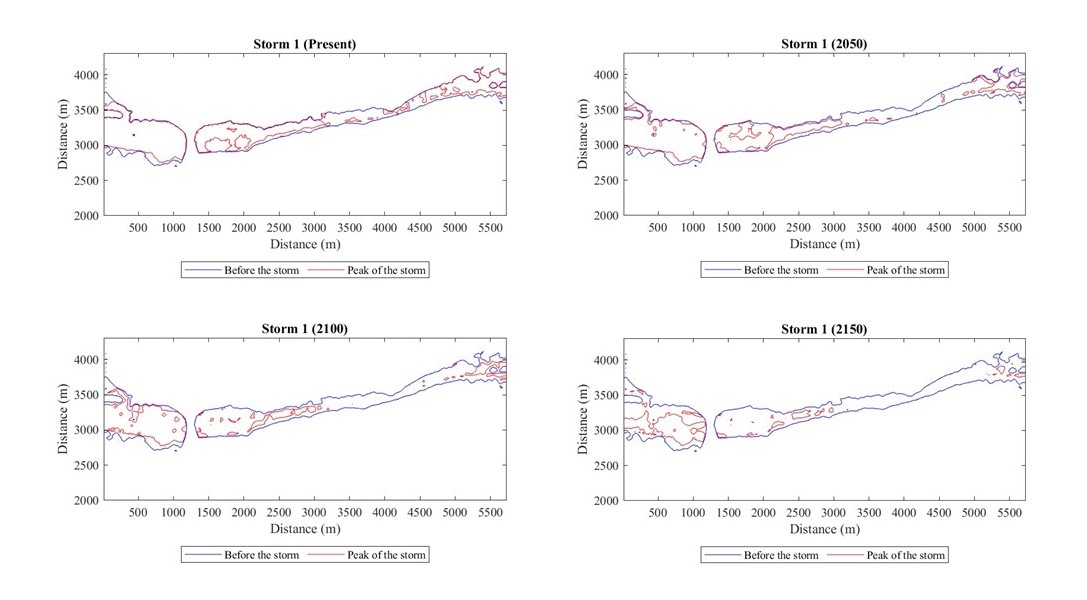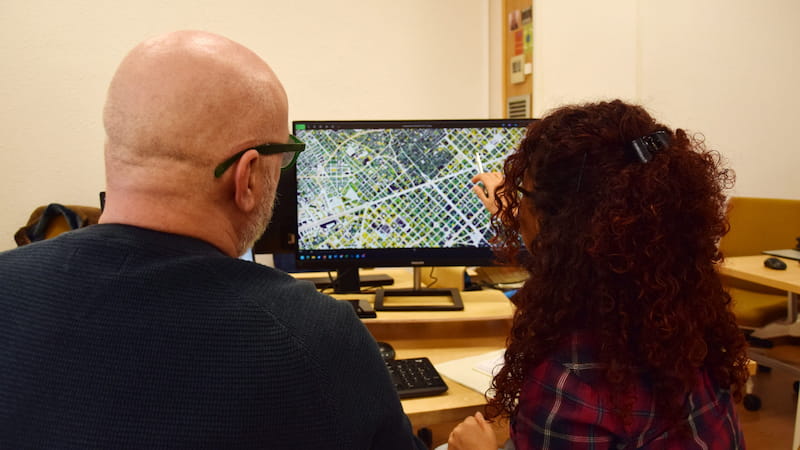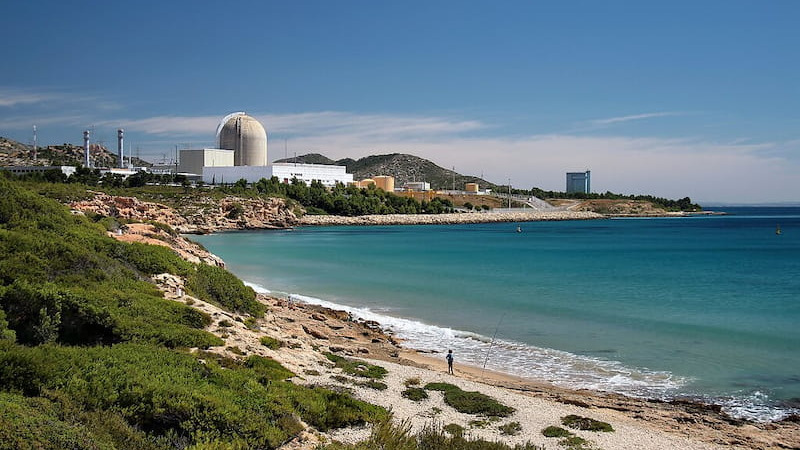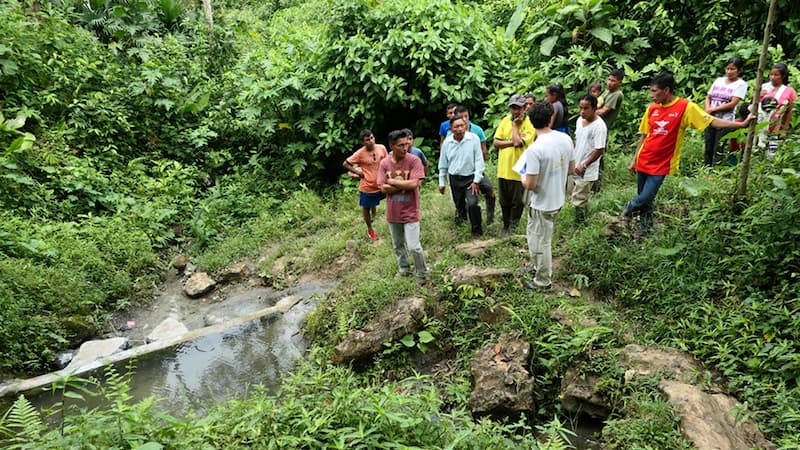Friday, June 30th, 2023. Time: 12 noon
Hybrid – O.C. Zienkiewicz Conference Room, C1 Building, UPC Campus Nord, Barcelona
ABSTRACT
The objective of this study is to analyse the vulnerability of the Dniester barrier beach located in Odessa, Ukraine, using the XBeach model (https://oss.deltares.nl/web/xbeach/). This area is very vulnerable due to its low height, which leaves infrastructure unprotected under extreme events. In addition, changes that are likely to result from the effects of climate change increase the need for studies to assess the impacts of these events on the coast and mitigate their effects, especially in vulnerable areas such as barrier beaches.
Climatic data from the area will be studied using the ERA5 dataset (Hersbach, et al., 2023), and the five storms with the highest wave height reaching the coast (at a depth of 15m, where the computational mesh starts) will be chosen. Next, the impact of these five storms on four different time horizons (the present, 2050, 2100 and 2150) will be analysed following the sea level rise projections given by the SSP5-8.5 scenario presented in the AR6 (IPCC, 2022) simulating each of these events with the XBeach model.

The results show that significant coastal recession occurs in three main areas (the mouth of the Dniester River, the sandbank located about 500m from the coast and the narrowest area of the barrier beach). In addition, although storms have significant effects on the coast, the main cause of flooding and sedimentation or erosion is sea level rise, which causes a large part of the studied area to be affected even under normal conditions. These results can be very useful for predicting damage and can help plan measures to be taken in the area to minimize risks derived from climate change and extreme events.
SPEAKER CV
Marta Torres Ribas is a second-year student on the Master's Degree in Civil Engineering at the Tecnical University of Catalonia. During the civil engineering degree, she did a mobility semester at the Twente university (The Netherlands) thanks to the Erasmus mobility programme. She did an internship at Aguas de Barcelona for a year. And currently she is doing an internship at CIMNE, participating in Challenge 2 of the PIKSEL project, on the evolution of the coastline, while finishing her Master’s thesis.
<!–
–>






